The Ritchie and Carlin superhero debate continues!
Last week, we discussed how our generational differences and initial exposures to these iconic characters shaped our contrasting views. Have superheroes evolved with the people and times, or are they being exploited by an older generation at the expense of children, their originally intended audience?
Part 2 – Evolution: Progress vs. Exploitation
CARLIN: The Dark Knight Returns, Watchmen, The Killing Joke, and Burton’s Batman marked the postmodern deconstructionist era. This was well underway by the time you were indoctrinated into the subculture, so in your view, what happened to superheroes from that point forward is, understandably, totally logical. And there’s no doubt that, for a long time, I myself responded favorably to the psychological complexity and moral ambiguity that permeated comics at that time. I was thirteen when Burton’s Batman came out, and sixteen when Batman Returns was released, and I really connected with those lonely, damaged characters (the portrayal of Catwoman really resonated with me; Pfeiffer’s performance––equal parts emotionally delicate, physically powerful, and intoxicatingly sensuous––is just splendid and heartbreaking). Meanwhile, I was at the neighborhood comic shop every week picking up the latest issues in the Death of Superman and Knightfall sagas––sprawling, soap-operatic stories that made pivotal use of nearly every ally and enemy in Superman and Batman’s respective canons.
But, God, I love those old comics––with their pulpy, newsprint paper stock, four-color printing process, and advertisements for things like “X-ray specs.” Just look at the ads in a comic book now and it’s obvious they’re not aimed at kids anymore. That’s a shame, to my mind. They were pure then, gateways to a secret world for only the wide-eyed and innocent.
RITCHIE: I have to say, Sean, you’re sounding a bit like a grumpy old man when it comes to memorializing your glory days of superheroes, and I mean that in the nicest possible way. Art and entertainment always change in response to our culture, and they rarely backtrack. The lense of personal nostalgia may leave you craving a certain direction for these characters and stories, but the truth is, I doubt that direction would connect with modern audiences––young or old.
Think of the classic John Wayne Westerns or the black and white Universal monster classics––if a film was made today just like those, audiences would eviscerate it. Kids are being raised on the PG-13, hyper-realistic takes for these characters and will call bullshit if they are dumbed down (not to say a story can’t be for kids and intelligent). Honestly, I don’t know how you could backtrack and make these films more “kid-oriented” without inciting vitriol from multiple age groups. And since Hollywood is a business, dollars make cents…I just don’t see it happening. However, there are many other ways that DC and Marvel are attempting to draw in new, younger audiences, such as through animated programming like Teen Titans, or the DC Superhero Girls toys and books.
CARLIN: You mentioned Dini’s Batman: The Animated Series. I was sixteen when that premiered––a junior in high school––and watched it (most afternoons) out of pure obligation, but it never resonated with me emotionally. I could certainly appreciate, even then, the noir aesthetic it was going for––a huge step up, animation-wise, from Super Friends––but the stories had no depth or darkness, insofar as I measured such things, to retain my interest. You have to understand, that was the summer I first read Interview with the Vampire, and the year of Batman Returns and Coppola’s sumptuous take on Dracula––those were the kinds of dark fantasies that were striking a chord with me at the height of my teenage angst! TAS was just too simplistic, ultimately; I was too old for it. But I know there’s an entire generation of fans that consider Kevin Conroy––not Keaton or Kilmer or Bale––to be the definitive actor to essay the role! He must’ve made quite an impression… but it was lost on me.
Funny enough, the aspect of TAS that kept me from engaging in it––its emotional and psychological simplicity––is the very thing I think we need more of in comics (and superhero movies) today: a focus on stories that appeal to a seven- to thirteen-year-old readership. I’m not saying comics can’t address mature issues or thematics––the best fairy tales and children’s stories (like those of E. B. White and Maurice Sendak) do exactly that––but I think when we’ve got an R-rated Superman movie, which we now do, we’ve distorted (if not outright perverted) the genre about as far as possible, and we’ve reached the point at which we ought to hit the reset button.
 It’s time for my generation to return superheroes to their intended audience. I believe––and I know we have our disagreements on this––they are adolescent bedtime stories, and it says something very unflattering, if not deeply troubling, about Gen X that we refuse to cede these characters to the next generation.
It’s time for my generation to return superheroes to their intended audience. I believe––and I know we have our disagreements on this––they are adolescent bedtime stories, and it says something very unflattering, if not deeply troubling, about Gen X that we refuse to cede these characters to the next generation.
RITCHIE: When you say “intended audience,” that’s a tough one. When exactly was the last time these characters were intended for younger kids? We’re talking decades ago. I think there’s a strong desire to see the characters you loved while growing up mature alongside you. You even mentioned being passionate about what you described as the postmodern deconstructionist era, seeing how deeper stories intertwined across titles, etc.
I suppose that the problem is how the films are advertised. You can’t turn on the TV or flip through a magazine without seeing an ad for the latest superhero cinematic extravaganza. DC and Marvel need to push their younger material more, some sort of bridge leading up to the PG-13 movies. There have definitely been times when I’ve seen kids in the theater that are way too young. Iron Man 3 had a pretty frightening scene where the Mandarin released threatening terrorist videos. An entire family got up and left. So I guess there’s a perception problem on both ends.
Check back next week for Part 3: Social Relevance and the Rise of Cinematic Universes
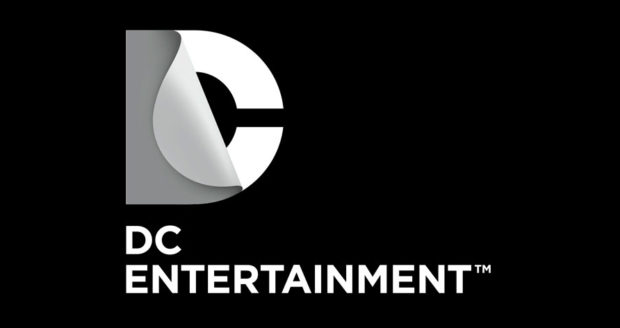

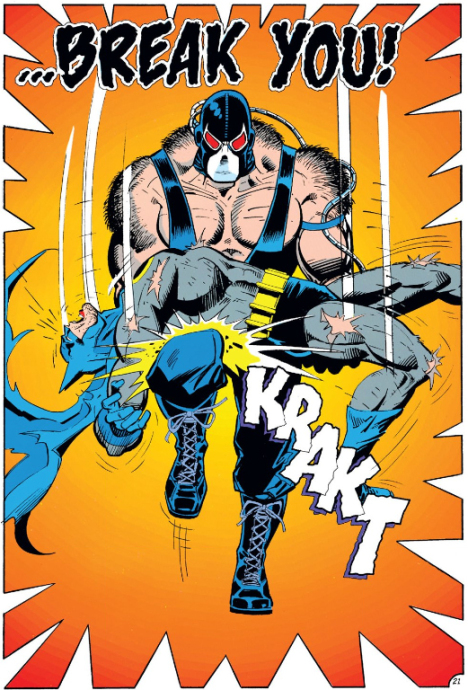
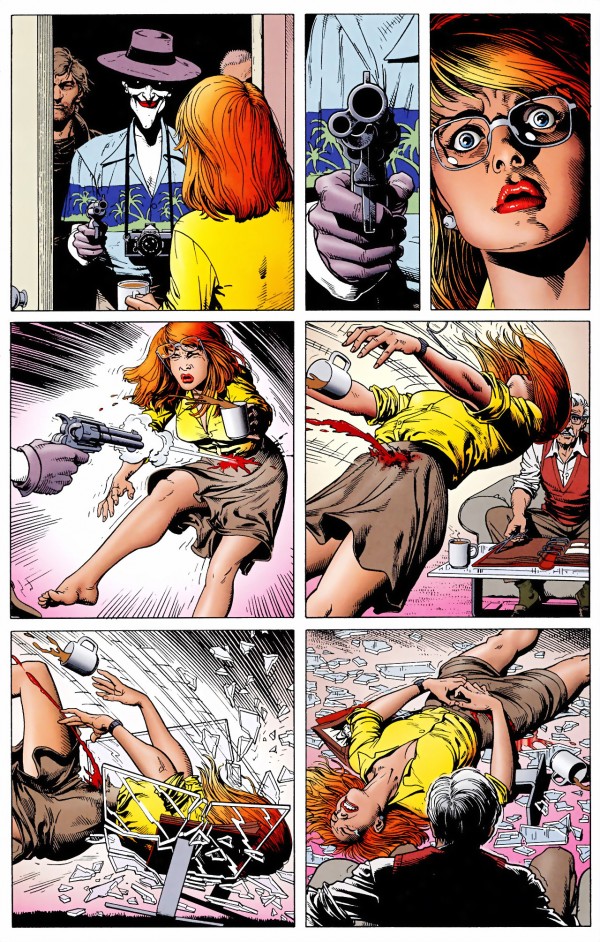
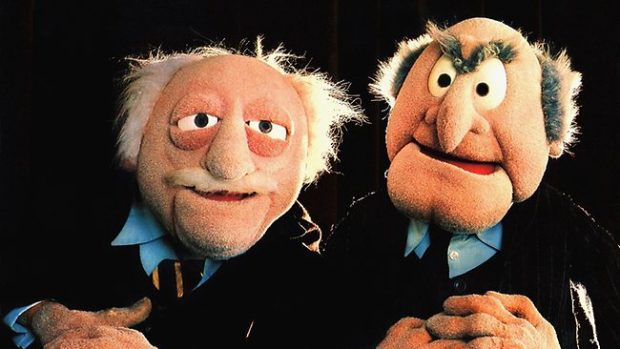
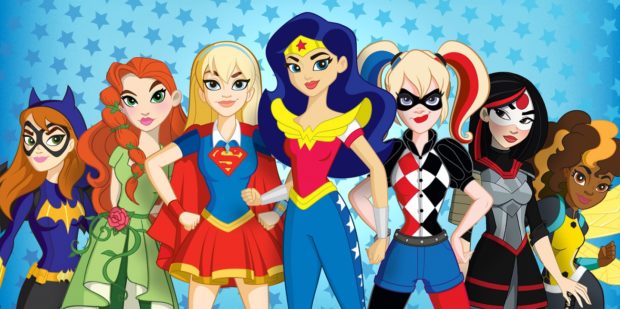
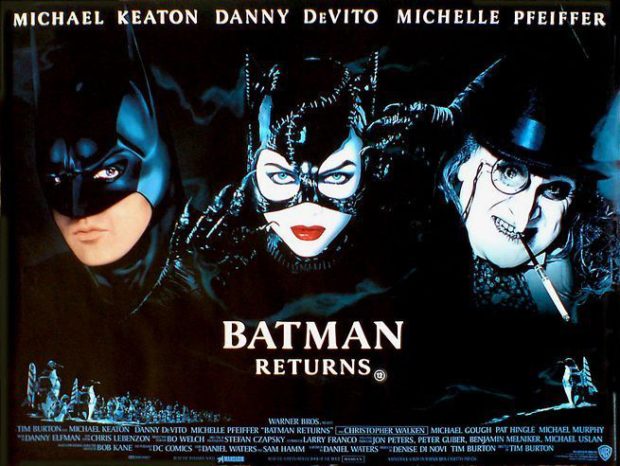
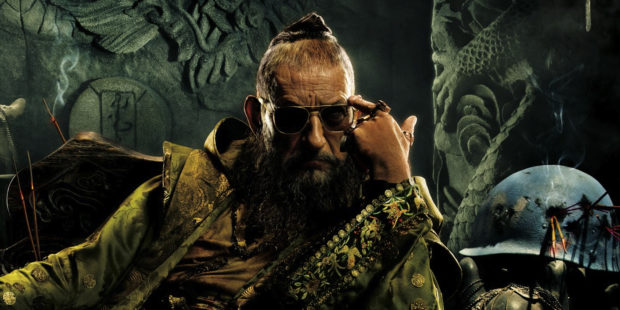
As I mentioned last time, I got into comic books later (after my now husband began my education in “funny books”). So, I find your debate interesting. I think it’s important to read the classic books to understand the story trends today-especially if you’re writing (kind of like learning your scales in music). But having come into the comic book world as an adult (though I loved Super Friends, X-Men animated series and Burton’s Batman), I would have to disagree with the idea the comics “intended audience” is for children. Perhaps at one time, or maybe adults just didn’t understand the beauty of comics back then. Had they, I think adults would have been just as likely to pick up a comic at their local 5 & dime back then as they are now at their neighborhood comic book store (or ComicCon as I did this past weekend).
Just my humble opinion.
Agreed! It’s been many, many years since comics were created with solely children in mind. While the heavy hitters (Batman, Superman, Avengers etc) should never get so adult as to alienate younger audiences, there are storytelling and character expectations from modern audiences/readers. The form can’t revert to more simplistic morality tales; it’s come too far.